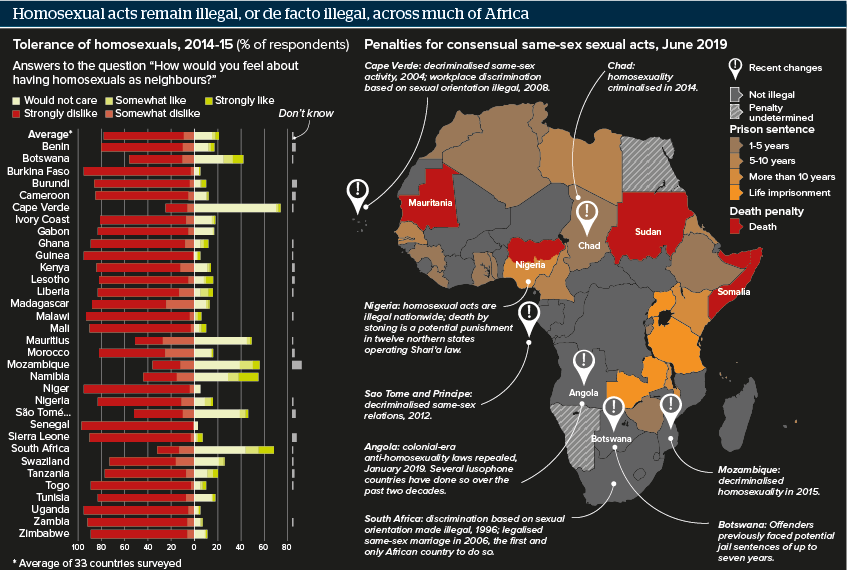African LGBT campaigners will make marginal gains
A high-profile judgement does not portend wide-ranging continental reform
Source: International Lesbian, Gay, Bisexual, Trans and Intersex Association (ILGA), Amnesty International, Afrobarometer
Outlook
The Botswana High Court on June 11 struck out several colonial-era penal code provisions forbidding homosexual acts. Following just five months after Angola also effectively decriminalised homosexuality, the unanimous judgement has been viewed as a potential harbinger of increasingly liberal attitudes to homosexuality across Sub-Saharan Africa.
However, recent setbacks, notably the Kenyan High Court’s decision in May to retain its colonial-era prohibitions, coupled with still-prevailing intolerance across much of Sub-Saharan Africa, means progress is likely to be piecemeal rather than quick and far-reaching.
African citizens are still much more likely to hold favourable views of neighbours of differing ethnicities, religions, immigrants/foreign workers and those suffering with HIV/AIDS above homosexuals.
Impacts
- Western donors may increasingly demand that recipients formalise LGBT protections as part of overall human rights commitments.
- Despite South Africa’s liberal constitution, ‘corrective rape’ will remain a persistent and underreported problem.
- Legal penalties for LGBT persons may gradually be removed in many countries, but hurdles to same-sex marriage will be more formidable.
- Liberalisation may hasten in parts of Southern Africa, but not in North Africa.
See also
- African activists face uphill battle on LGBT rights - Nov 17, 2021
- Zambian government will grow increasingly defensive - Jan 17, 2020
- Tanzania will resist pressure over social conservatism - Dec 3, 2018
- More graphic analysis
